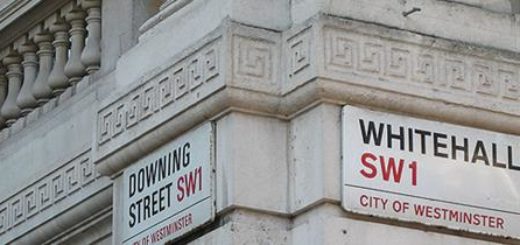In a landmark judgement on June 20, the Court of Appeal in London ruled that UK arms exports to Saudi Arabia are unlawful. The Judges ruled that licences should not be granted when there was a clear risk that the weapons would be used to violate international law, and that Ministers had failed to properly assess that risk.
The British ruling follows a German court ruling on behalf of Faisal bin Ali Jaber in March this year which found that part of US drone strikes in Yemen are unlawful, and that Germany played a “central role” in assisting these strikes through the US’ use of the German Ramstein Air Base.
Both judgements highlighted the comprehensive responsibilities that come with military assistance and partnership and found that the respective governments had failed to provide an adequate assessment of the legality of a partners’ use of assistance, and hence the legality of its own provision of military assistance.
Building on the recommendations made in its 2018 cross-party report, The UK’s Use of Armed Drones: Working with Partners, the APPG on Drones issues the below statement, also available here, signed by Chair Baroness Stern and Vice-Chairs Alex Sobel MP, Tom Brake MP, Caroline Lucas MP, Lord Hodgson of Astely Abbotts, Lord Wallace of Tankerness and Lord Macdonald of River Glaven.
APPG on Drones Statement on UK Assistance to Partners, following UK Court Ruling Arms Exports to Saudi Arabia Unlawful
On June 20, the Court of Appeal in London ruled that UK arms exports to Saudi Arabia are unlawful. UK export policy asserts that licences for military equipment can not be conceded if there is a “clear risk” that it may be used in a “serious violation of international humanitarian law.”[1]. Handing down the judgement, master of the rolls Sir Terence Etherton said the UK government “made no concluded assessments of whether the Saudi-led coalition had committed violations of international humanitarian law in the past, during the Yemen conflict, and made no attempt to do so.”[2]
The British ruling follows a German court ruling in March this year which found that part of US drone strikes in Yemen are unlawful, and that Germany played a “central role” in assisting these strikes through the US’ use of the German Ramstein Air Base.[3] The Court held that Germany’s role means it has an obligation to protect the right to life of those being targeted, and so must take action (beyond assurances) to ensure that the US respects international law in its use of Ramstein Air Base.
The British Government repeatedly claims that the military does “everything it can to minimise the risk to human life and to civilian infrastructure”[4], and its processes and guidelines are “among the most robust in the world”[5]. However, these judgments echo the APPG on Drones’ 2018 Inquiry Report in casting doubt on the way such ‘robust’ protocols are really exercised. They indicate that both the German and UK governments have failed to provide an adequate assessment of the legality of a partners’ use of the practical assistance they provided. This failure of process has important implications for the legality of the UK’s own provision of military assistance, and ultimately the UK’s global responsibilities in upholding the principles of the protection of civilians in conflict.
Protecting civilians is not just about complying with international law. It is also about trying to be better – identifying additional precautionary measures, exploring different operational approaches, and seeking to do everything possible. Robust policy and process is particularly important when working with and assisting partners - especially those with differing rules of engagement from our own.
Today the UK provides a myriad of assistance to partners, almost entirely without parliamentary oversight or means of evaluation. Among the more controversial forms of assistance is that to the Saudi-led Coalition in Yemen,[6] and to the US drone programme conducting unilateral counter-terrorism strikes.[7] In both cases, significant allegations of disproportionate and uncounted civilian casualties have been brought forth. These include flagrant violations of international law such as the use of “double-tap” strikes, the targeting of funerals and weddings, as well as recurring targeting of civilian infrastructure such as hospitals, schools and utilities.[8]
Existing processes authorising, evaluating and assessing UK security assistance to partners are not robust enough to counter current risks of complicity in partners’ unlawful actions and harm to civilians in conflict. UK assistance arrangements with partners are largely described by the Government as “falling short of combat”, and therefore avoid any official requirement to debate, or even report these arrangements in Parliament.
In addition, there are several crucial gaps in Parliament’s ability to conduct even post-hoc scrutiny of partner assistance. This is due to the inadequate provision of information to committees[9][10], and the lack of any one body within Parliament to holistically scrutinise all aspects of the use of force - particularly when working with partners.[11] Most recently the Committees on Arms Export Control’s failure to address UK assistance to Yemen has raised widespread concerns[12] of its abilities, including by its own members.[13]
The British court ruling is a crucial wake up call, reminding the UK of its responsibilities under British and international law. With the legal and human implications of the UK’s assistance to the US rendition programme in mind, it is paramount that the UK ensures that all its military activity - assistance and UK operations - comply with the relevant legal frameworks and institutionalise the protection of civilians as a central condition for any partnership.
The changing nature of war makes it imperative that civilian protection is a specific and central criteria when providing assistance to partners. Today up to 85% of casualties in war are civilians. Contemporary war, increasingly waged from the air, and with explosive weapons in urban environments, overwhelmingly affects civilians.
As articulated in the UN Secretary General’s call to action in his latest protection of civilians report - these numbers indicate an urgent need to put in place robust and meaningful national policies to protect civilians in conflict.[14] This needs to be coupled with determined advocacy to ensure adherence to international humanitarian law at both the domestic and international levels.
The APPG has frequently raised concerns about the ability of existing mechanisms to ensure the legality of UK assistance. The German and UK court rulings confirm that these remain inadequate, leading to potential complicity in partners’ unlawful acts.[15]
The UK’s current position as penholder for the UN Security Council’s mandate for the protection of civilians provides a unique opportunity to lead a global re-commitment on civilian protection in armed conflict. By staking the British position when assisting and working with partners - whether we are sharing intelligence and assets, or providing weapons and materiel support - we can lead the way in ensuring states comply with their obligations
The APPG on Drones urges the Government to take up the position as a global leader, and for the forthcoming UK Protection of Civilian strategy to represent the beginning of a dedicated process to institutionalise civilian protection as a cross-departmental, top line priority - both for our own operations and in partner assistance.
[1] https://www.bbc.co.uk/news/uk-48704596
[2] https://www.bbc.co.uk/news/uk-48704596
[3]The court found that part of the US strikes were “not compatible with international law” and asserted that Germany must “do more” to prevent its territory from being used in unlawful strikes
[4]https://www.parliament.uk/written-questions-answers-statements/written-question/commons/2018-10-17/180811
[5] See for example HL3497, 7 December 2017. The Campaign Against the Arms Trade have created a blog specifically to track Government uses of this phrase.
[6] To Saudi-Arabia, the UK exports arms, provides maintenance and training to utilise these in addition to 6300 British contractors and 80 additional serving RAF personnel that are stationed in command and control centres in Riyadh where targets are selected.
[7] British assistance to the US drone programme includes intelligence sharing, embedded UK personnel, and the use of UK bases. For example, the use of Menwith Hill base in Yorkshire allows the US to triangulate information and track informants.
[8] https://yemen.bellingcat.com/; http://www.yemendataproject.org/; https://bit.ly/2pM7A7i; https://nyti.ms/2TNJ4gh
[9] Joint Committee on Human Rights (2016) The Government’s policy on the use of drones for targeted killing: Government response to the Committee’s second report of Session 2015- 16, 19 October, HC 747, p.4 (https://bit.ly/2NqUC6P); Intelligence and Security Committee (2017) UK Lethal Drone Strikes in Syria, 26 April, HC 1152, p.10 (https://bit.ly/2lSfLdG).
[10] E.g. the Intelligence and Security Committee, the Committees on Arms Export Control, and Joint Committee on Human Rights
[11]APPG on Drones (2018) The UK’s Use of Drones: Working with Partners. (https://bit.ly/2yZSMoe )
[12]Dr Anna Stavrianakis, an expert on arms exports that regularly testifies before the committee, has criticised CAEC for failing to address Yemen on its 2019 agenda. https://www.theguardian.com/global-development/2019/feb/11/uk-arms-exports-yemen-conflict
[13]One MP said “we cannot scrutinise if Raytheon does not turn up.” https://www.theguardian.com/global-development/2019/jan/31/damning-report-calls-on-uk-to-come-clean-over-arms-exports-yemen
[14] https://undocs.org/S/2019/373
[15]APPG on Drones Inquiry Report: The UK’s Use of Drones: Working with Partners, https://bitly.com/; APPG on Drones, Statement on UK Assistance to Partners Following Ground-Breaking German Court Ruling, https://bit.ly/2GhFPKx



